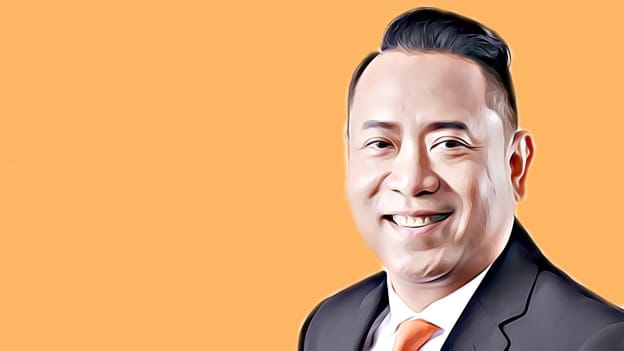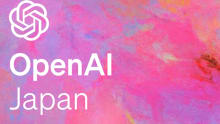Be agile, fail fast and learn fast: FWD’s CHRO on the future of work

Weerapat Sapakarn currently serves as an Executive Director and Chief Human Resources Officer at FWD Life Insurance Public Company Limited in Thailand. With over 22 years in the financial services industry, he oversees FWD's overarching people strategy in Thailand. This includes the development of the organization as well as its people. His role spans performance management and internal communications as well as programs for employee training and engagement.
Weerapat has been involved in HR projects across Asia having worked with numerous global brands and organizations. He holds an MBA and he trained and qualified as an Executive Coach at the Berkeley Executive Coaching Institute in the USA.
Here are the excerpts from the exclusive interaction with Sapakarn:
What are some of the key changes you've seen taking place in the Asian workplace over the last ten years? How can these help us envision (and plan for) our future world of work?
I have noticed a dramatic change in people’s lifestyles – and this is undoubtedly impacting their priorities. Whereas our parents’ generation would happily work for one company for their entire life, these days it’s all about making work fit our lifestyles. This could be to fit in with family commitments or simply to ensure that our careers complement our wider goals or well-being. So there’s a far greater focus on personalization and a need for employer flexibility. There’s also a strong demand for ‘meaningful’ careers – in other words, work that involves doing something beyond financial gain. So businesses will have to offer more than just a competitive financial package, and instead, offer the means by which an employee can find purpose - or even create meaningful social impact.
Of course, the second big change has come from the emergence of new technologies. The digital revolution has changed everything – from how we work through to where we work and even what that work looks like.
How has the role of an HR professional changed in recent years?
That’s a good question. As HR professionals, we’re now moving from the traditional role of admin and support and moving towards a more strategic role, almost akin to being a consultant or a business partner. Because a lot of our administrative tasks have already been replaced by more efficient IT solutions – as is the case for many of our colleagues. Naturally, this can create turbulence as it’s disrupting the traditional (human talent) model. So an HR professional must now offer support as people adapt to this – by ensuring that business leaders don’t leave our valuable talent behind. Ultimately, we need to ensure that talent development is a big priority in any company’s growth plans.
And employees need to play their part too. They need to be committed to upskilling and finding new and creative ways of thinking and of problem-solving. They need to adapt. Again, this is where HR step in – be it via in-house training or outsourcing that training with new, exciting ideas of how we can work.
And of course, we remain the voice of our employees. So it’s essential that HR professionals are able to craft an employee experience cycle that starts from the earliest stages of candidate acquisition all the way through to the end of that candidate’s work cycle.
Finally, a healthy and positive workplace culture starts with HR. So it’s imperative that HR works closely with other key management in order to deliver the right workplace culture.
What would the workplace of the future be like?
I would say that there are three main factors that we need to consider today in order to be ready for tomorrow.
-
Looking inside out: Looking internally and HR needs to fully understand their company’s values, vision, and aims. This means being committed to change, and this commitment should manifest through being passionate about new ways of working and ensuring that HR bring people with them. At times of change, good training is paramount so that no one is left behind - and everyone’s capabilities are built up in good time.
-
Looking outside in: We can’t stop the tide of change. Technological advancement, changing demographics, and increased competition are all contributing to a changing workplace. These are all shaping the demands and expectations of our customers. So it’s important to not only embrace these changes but to try and anticipate them.
-
Differentiating ourselves: Naturally, all companies seek to differentiate themselves from the competition. The question is, how do we do this? At FWD, we believe that our point of difference begins with our people. From redefining what it means to be a leader to adding new and innovative skill sets. If we’re committed to change at a ‘people’ level, I believe that this (positive) commitment to change will slip-stream through to other areas of our work - from our products to our Customer Experience (CX) channels.
What challenges do you envision when it comes to managing talent?
In my view, there are two main challenges. First: how do we retain talent, and second: how do we keep that talent engaged? Because as I’ve previously said, traditional ways of working are losing appeal. So companies need to work hard to structure themselves in ways that match these changes. We need to incentivize our talent, inspiring them to move up rather than move on. That’s why at FWD we’ve introduced the concept of ‘agile working’ – meaning we encourage our people to fail fast, learn faster and - via training and support - be fully equipped to keep up with the pace of not only our business but our industry.
What role will Artificial Intelligence and automation play in the future of work?
First, I do concede that artificial intelligence will continue to replace a number of roles as more and more tasks are able to become automated. But in keeping with what our CEO, Phong recently said at the APLIC 2019 industry conference, the human touch is far from dead. There are many creative jobs in our industry that need human input, and I’ve not yet heard of a bot that can replace a human when it comes to strategic thinking. Likewise, our own research tells us that within certain services there’s a strong preference for real-time human interaction. Which is why at FWD we take an omnichannel approach. Likewise, there are now many technologies that are designed to support rather than replace human performance - so we’re seeing the emergence of human/cyber teamwork for example. Personally, I can see the pros and cons of both sides. In the end, nothing is perfect.
At FWD you have won awards for your digital solutions. How do you suggest companies prepare for their own digital transformation? Do you have any tips?
I think that it’s critical to identify not only where the digital opportunities are but exactly how these can benefit an organization. Will it help create (or sustain) a market advantage? Will it help engage your people, whether staff or customers? I also think that the biggest pitfall in introducing a new digital technology is very often its internal communication. Remember: some employees may interpret this new digital strategy in a negative way because they feel it threatens their job. So good communication is essential.
How can an organization ensure that its employees are fully engaged with and supportive of a digital transformation? How does that inclusion happen?
Again, change management is the key to success, and that means prioritizing a robust internal communications strategy. And going digital has many advantages for businesses – including its workforce. So, we need to communicate these advantages, removing the idea that they’re a threat.
What role does How important is workplace culture when it comes to the process of digital transformation?
I think that a strong workplace culture goes hand-in-hand with digital transformation -and together it is these two things that create a future-ready organisation. At FWD we have five core values called FWD Chemistry embedded in our workplace culture. So we’re all committed to being: Proactive; Open; Committed; Caring; and Innovative. FWD Chemistry (core values) is the foundations to how we work (whether we’re working on digital innovation or something entirely different)as well as the gateway in how others perceive us. And actually it is these values that have attracted a lot of our digital talent – which in itself demonstrates the importance of a strong workplace culture.
What role does HR play in the digital transformation of an organization?
I would say that there are two main ways that HR can contribute here.
-
Culture building: The CEO, Senior Management Team and HR all need to work together to build a culture that supports any changes the business is undergoing. We need to be a role model, to walk the talk and bring FWD Chemistry and brand values into all processes. The increase in connectivity, for example, is blurring the boundaries between home and office. So, it’s up to HR to help employees manage their work-life balance.
-
Being a business partner: HR needs to fully understand the goals of its business, as well as its strategy and challenges. In essence, it needs to ensure its people strategy is always aligned to the business.















